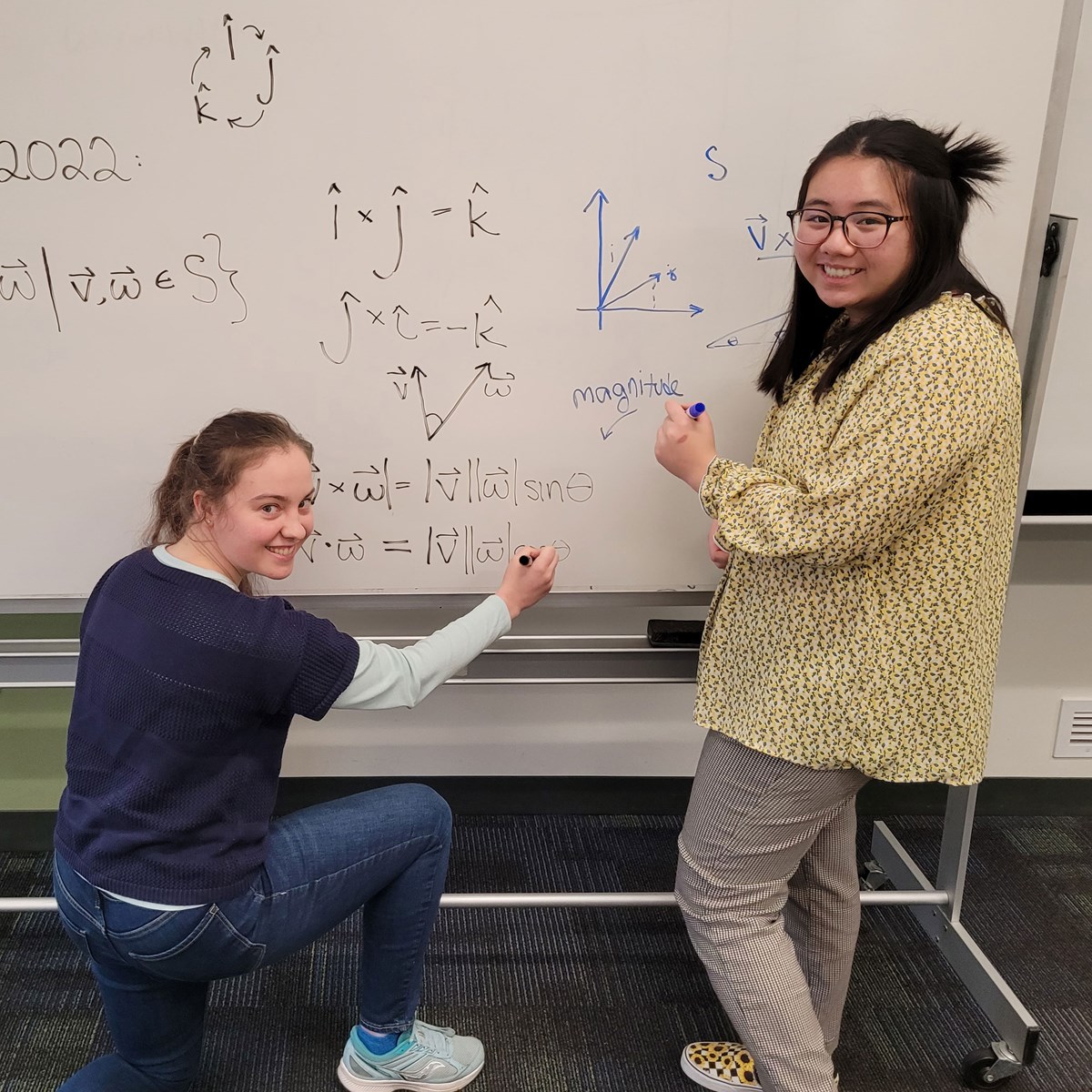For students who entered fall 2024 and beyond.
Freshman Year
Sophomore Year
Junior Year
Senior Year
Total Minimum Credits = 120.
1MATH.1020 is optional but strongly recommended. If this course is completed, then total free electives are reduced by one credit.
2All Kennedy College of Sciences (KCS) majors in BS programs must complete a minimum of 60 credits of KCS coursework. These can be required or elective courses for majors in KCS departments or KCS courses specifically designated as appropriate for science majors. Courses with titles indicating they are for non-science majors or explicitly designated for non-science majors in the course description cannot be used toward this 60-credit requirement.
3Math BS majors, when completing their Core Breadth of Knowledge (BOK) requirement for the Sciences with Lab Perspective (SCL), must select courses from the departments of Biology; Chemistry; Environmental, Earth and Atmospheric Sciences (EEAS); or Physics. Courses with descriptions indicating they are for non-science majors or explicitly designated for non-science majors in the course description cannot be used toward the 60 credits of Kennedy College of Science (KCS) coursework requirement.
4The Arts and Humanities (AH) and Social Sciences (SS) perspectives are subsets of the Breadth of Knowledge (BOK) requirements in the Core Curriculum. No more than two BOK courses can be taken with the same four-letter prefix.
The Core Curriculum also includes seven Essential Learning Outcomes (ELOs). The Diversity and Cultural Awareness (DCA) ELO and the Social Responsibility and Ethics (SRE) ELO are satisfied outside the major requirements. See the DCA course listing and the SRE course listing for a full list of classes that fulfill these requirements. The Class Search tool can be used to identify AH and SS courses that simultaneously satisfy the DCA or SRE requirement.
The Core Curriculum courses may be taken in any sequence. Refer to the Core Curriculum policy for further details. You should meet with your college-based professional advisor and/or faculty advisor to determine how best to satisfy the Core Curriculum requirements.
5Computing Electives:
6Free electives can be satisfied by any UMass Lowell (UML) course xxxx.1010 or above, with the following exceptions:
- Students only need to complete enough free elective credits to reach 120 total credits.
- Courses with the MATH prefix must be at or above the level of MATH.1225 Precalculus Mathematics I in order to count towards the minimum 120 credits required to graduate.
- No more than 60 credits of MATH coursework may be applied towards the minimum 120 credits requirement to graduate.
- The following courses do not count towards the minimum 120 credits to graduate: MATH.1280, MATH.1380, MATH.1390, MATH.1510, MATH.2195, MATH.2270, MATH.2830, MATH.3600, MATH.3630, ECON.2110, ECON.2120, PHYS.3810
7Applied and Computational Mathematics Electives:
Current UMass Lowell students should use their Advisement Report in SIS. If you need assistance, please contact your advisor.
Restriction on off-campus study:
Be advised that any course taken at another institution must be formally approved prior to enrollment. See the catalog policy for details.










